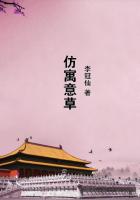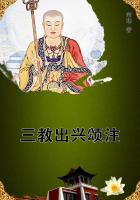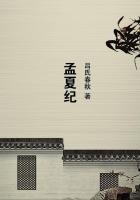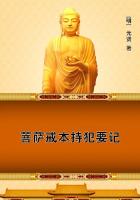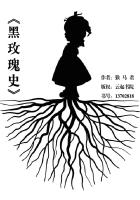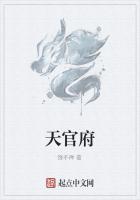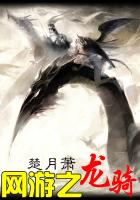He had been in London more than once before, but not to the lodgings in Philibert Place. When he was brought a second or third time to a town or city, he always knew that the house he was taken to would be in a quarter new to him, and he should not see again the people he had seen before. Such slight links of acquaintance as sometimes formed themselves between him and other children as shabby and poor as himself were easily broken. His father, however, had never forbidden him to make chance acquaintances. He had, in fact, told him that he had reasons for not wishing him to hold himself aloof from other boys. The only barrier which must exist between them must be the barrier of silence concerning his wanderings from country to country. Other boys as poor as he was did not make constant journeys, therefore they would miss nothing from his boyish talk when he omitted all mention of his. When he was in Russia, he must speak only of Russian places and Russian people and customs. When he was in France, Germany, Austria, or England, he must do the same thing.
When he had learned English, French, German, Italian, and Russian he did not know. He had seemed to grow up in the midst of changing tongues which all seemed familiar to him, as languages are familiar to children who have lived with them until one scarcely seems less familiar than another. He did remember, however, that his father had always been unswerving in his attention to his pronunciation and method of speaking the language of any country they chanced to be living in.
“You must not seem a foreigner in any country,'' he had said to him. “It is necessary that you should not. But when you are in England, you must not know French, or German, or anything but English.''
Once, when he was seven or eight years old, a boy had asked him what his father's work was.
“His own father is a carpenter, and he asked me if my father was one,'' Marco brought the story to Loristan. “I said you were not. Then he asked if you were a shoemaker, and another one said you might be a bricklayer or a tailor--and I didn't know what to tell them.'' He had been out playing in a London street, and he put a grubby little hand on his father's arm, and clutched and almost fiercely shook it. “I wanted to say that you were not like their fathers, not at all. I knew you were not, though you were quite as poor. You are not a bricklayer or a shoemaker, but a patriot--you could not be only a bricklayer--you!'' He said it grandly and with a queer indignation, his black head held up and his eyes angry.
Loristan laid his hand against his mouth.
“Hush! hush!'' he said. “Is it an insult to a man to think he may be a carpenter or make a good suit of clothes? If I could make our clothes, we should go better dressed. If I were a shoemaker, your toes would not be ****** their way into the world as they are now.'' He was smiling, but Marco saw his head held itself high, too, and his eyes were glowing as he touched his shoulder. “I know you did not tell them I was a patriot,'' he ended. “What was it you said to them?''
“I remembered that you were nearly always writing and drawing maps, and I said you were a writer, but I did not know what you wrote--and that you said it was a poor trade. I heard you say that once to Lazarus. Was that a right thing to tell them?''
“Yes. You may always say it if you are asked. There are poor fellows enough who write a thousand different things which bring them little money. There is nothing strange in my being a writer.''
So Loristan answered him, and from that time if, by any chance, his father's means of livelihood were inquired into, it was ****** enough and true enough to say that he wrote to earn his bread.
In the first days of strangeness to a new place, Marco often walked a great deal. He was strong and untiring, and it amused him to wander through unknown streets, and look at shops, and houses, and people. He did not confine himself to the great thoroughfares, but liked to branch off into the side streets and odd, deserted-looking squares, and even courts and alleyways. He often stopped to watch workmen and talk to them if they were friendly. In this way he made stray acquaintances in his strollings, and learned a good many things. He had a fondness for wandering musicians, and, from an old Italian who had in his youth been a singer in opera, he had learned to sing a number of songs in his strong, musical boy-voice. He knew well many of the songs of the people in several countries.
It was very dull this first morning, and he wished that he had something to do or some one to speak to. To do nothing whatever is a depressing thing at all times, but perhaps it is more especially so when one is a big, healthy boy twelve years old.
London as he saw it in the Marylebone Road seemed to him a hideous place. It was murky and shabby-looking, and full of dreary-faced people. It was not the first time he had seen the same things, and they always made him feel that he wished he had something to do.
Suddenly he turned away from the gate and went into the house to speak to Lazarus. He found him in his dingy closet of a room on the fourth floor at the back of the house.
“I am going for a walk,'' he announced to him. “Please tell my father if he asks for me. He is busy, and I must not disturb him.''
Lazarus was patching an old coat as he often patched things--even shoes sometimes. When Marco spoke, he stood up at once to answer him. He was very obstinate and particular about certain forms of manner. Nothing would have obliged him to remain seated when Loristan or Marco was near him. Marco thought it was because he had been so strictly trained as a soldier. He knew that his father had had great trouble to make him lay aside his habit of saluting when they spoke to him.
“Perhaps,'' Marco had heard Loristan say to him almost severely, once when he had forgotten himself and had stood at salute while his master passed through a broken-down iron gate before an equally broken-down-looking lodging-house--“perhaps you can force yourself to remember when I tell you that it is not safe--IT IS NOT SAFE! You put us in danger!''



